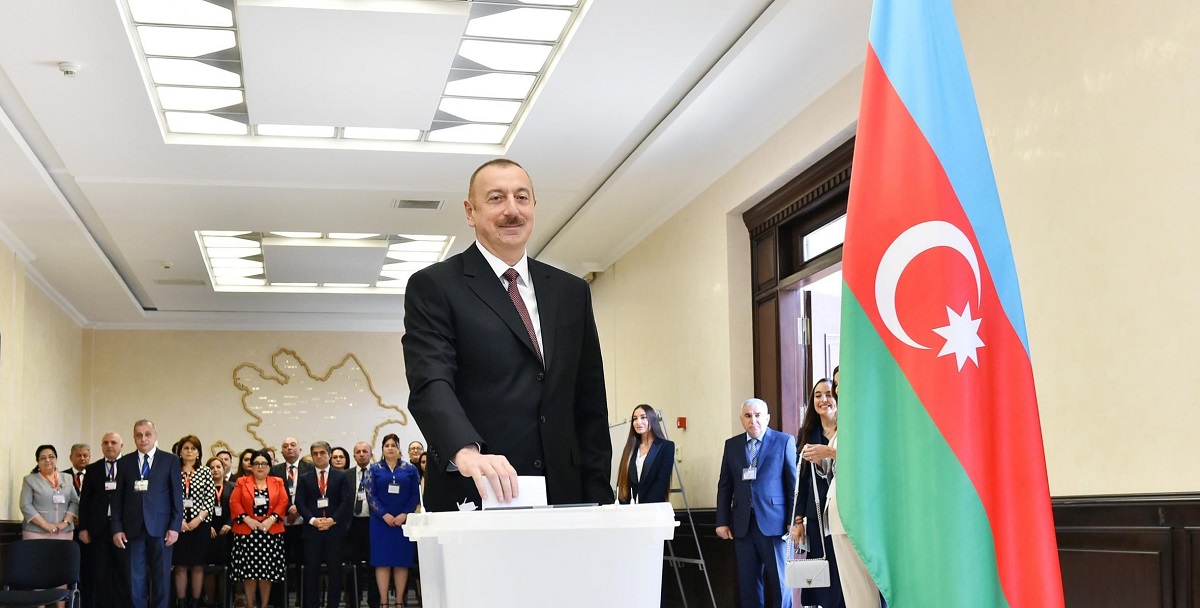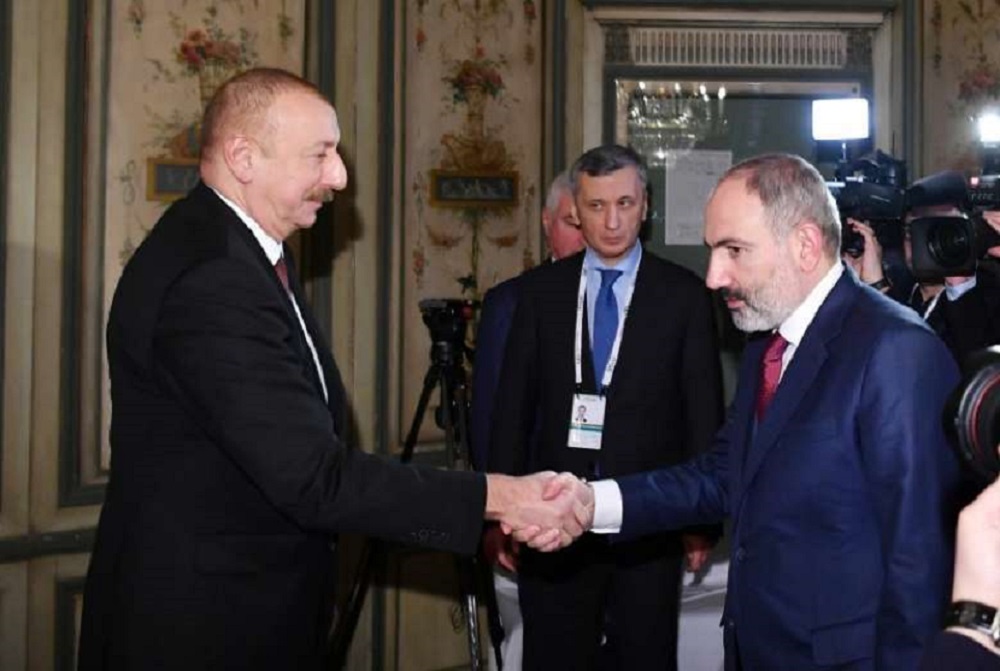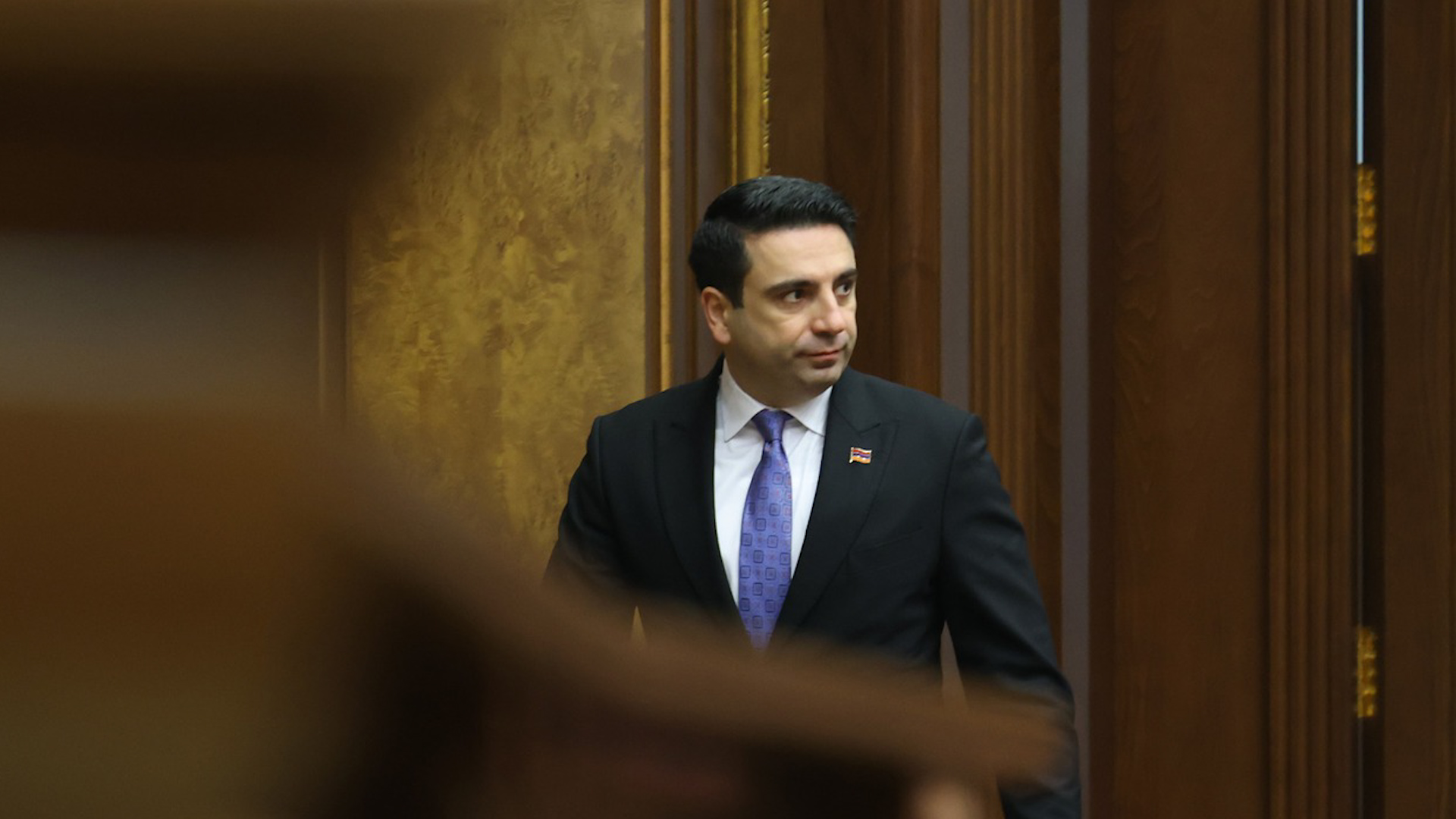"A deal between Washington and Baku". On the joint statement of Armenia and Azerbaijan
Opinion on the Armenia-Azerbaijan statement
The main topic in Armenia is the first joint statement of the authorities of Armenia and Azerbaijan, which was published on December 7.
Armenian expert circles do not consider the signing of this document as the beginning of direct dialogue.
Political observer Hakob Badalyan told JAMnews that he has no doubt this statement is the result of mediation work. He does not consider it coincidental that the document was published after US Assistant Secretary of State O’Brien’s visit to Baku and on the day when the American co-chair of the OSCE Minsk Group, Louis Bono, was in Yerevan.
“It was a deal with the US. It is difficult to say what content, and whether it was specifically about the Armenian-Azerbaijani peace process or other issues,” Badalyan said.
The expert suggests that in addition to the Armenian-Azerbaijani issue, Baku and Washington have “much more important issues related to Central Asia” on their agenda.
Hakob Badalyan, political observer
The return of Armenian prisoners is a significant result
“32 captives are returning to Armenia, and this can be considered at least one tangible result of the joint statement.
In general, it should be clear that such statements are not made according to the logic of goodwill. This means that behind the document there is a process or a chain of certain political agreements.
What the content and logic of these agreements is will become clear in the near future, during possible meetings either at the level of foreign ministers or at the level of heads of state. The very essence of the statement will become clear in time.
The list of 32 prisoners who will return to Armenia has been published. It also includes the name of reservist Gagik Voskanyan. He was captured while participating in the military training camp in Jermuk. A few hours before the statement was published, he was sentenced in Baku to 18 years in prison. He was accused of committing a number of serious crimes, ranging from terrorism to illegal border crossing. Voskanyan did not plead guilty.
According to official data, Azerbaijan is holding 55 prisoners officially confirmed by Baku. However, Armenian human rights activists claim that another 80 people are being held in Azerbaijan. The joint statement does not say why the principle of “all for all” did not work if the Armenian side returns all of them. We are talking about two Azerbaijanis, one of whom was sentenced in Armenia to life imprisonment for murder.
The prisoner exchange was expected months ago
“The agreement on the exchange of prisoners was one of the agreements of the meeting held in Brussels in May. The question arises: Why has it not taken place so far and why is it happening now? Who and what did they get in return for signing this statement?
If we proceed from arithmetic considerations, Azerbaijan is going for an exchange of 32 for two. Baku has always used the issue of prisoners as an argument for political blackmail. Now, when such an exchange takes place, it is hard to imagine why Azerbaijan is ready to return 32 Armenian servicemen to get two. Questions arise: what discussions, other political circumstances, conditions are behind this decision?”
Was Baku pressured or did it fulfill some of its conditions?
“On the eve of O’Brien’s visit, we witnessed harsh diplomatic rhetoric between the US and Azerbaijan. After his visit to Baku, O’Brien had stated that a constructive meeting took place. Naturally, questions arise again: whether the Americans put pressure on Baku or met some of its conditions. Did these conditions refer directly to the Armenian-Azerbaijani process or other issues, maybe the US.simply received Azerbaijan’s consent to the resumption of the Washington talks?
As far as relations with Azerbaijan are concerned, not only the Armenia-Azerbaijan issue is on the US agenda. There are much more important issues related to interests in Central Asia. Moreover, the Caucasus is seen as a road to the Central Asian region.
Azerbaijan is the most important, in a sense even indispensable subject on this road. The continuation of the negotiation process will show how significant a link this joint statement was in the overall chain.
The key question is what Azerbaijan gains by agreeing to such an exchange. There is little doubt that it gets something. I do not think that Baku took a risk when it refused to go to Washington on November 20 and did not assume that it could be pressured, etc. Such errors in calculations were hardly made.”
Georgia may have been involved in the process as well
“Attention should be paid to the fact that on November 28, Araik Harutyunyan, Chief of Staff of the Armenian Prime Minister, was in Georgia. He met with the Georgian Prime Minister, who had returned from Baku, where a conference on Central Asian countries was held. Aliyev invited the Georgian Prime Minister.
We should also not rule out that the process, the very working process of preparing the statement passed through Georgia, and at the end the Americans came and summarized. There is no doubt that this statement is the result of mediation efforts.”
Yerevan and Baku have no possibility of direct communication
“There can be no de facto bilateral contact between Armenia and Azerbaijan. The status quo in the Caucasus is extremely highly valued in a geopolitical sense. None of the major players will actually allow Armenia and Azerbaijan to sit down at the negotiating table one-on-one.
The Armenian-Azerbaijani process has always been and will always be a target of geopolitical centers of power, a subject of attention, direct intensive involvement.
Armenia and Azerbaijan – neither separately, nor together – do not have the weight to push aside the interests and ambitions of these geopolitical centers and conduct bilateral, autonomous negotiations. This is absolutely impossible.
“Nagorno-Karabakh’s former leaders are a trump card in Baku’s hands”
“There is no doubt that the Azerbaijani authorities will try to play this card that has fallen into their hands for as long as possible. The NK leaders were not included in the list of prisoner exchange because Baku simply did not agree to it. And it intends to manipulate a playing card of such caliber for a long time. How long these people will stay in Baku, it is very difficult to say. It depends on many circumstances.
Let’s recall that Aliyev said on May 28: if Artsakh’s parliament is dissolved, if the leaders surrender to Azerbaijan, they will fall under amnesty. And the US welcomed this at the State Department level. But after that many events took place, including in Nagorno-Karabakh. Azerbaijan actually solved the issue by using force”.
Follow us – Twitter | Facebook | Instagram
Opinion on the Armenia-Azerbaijan statement





















